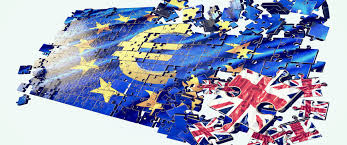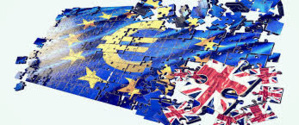With the intention to make its position more clear before negotiations kickoff, pressure on the U.K. government has been stepped up by the European Parliament's representative in relation to Brexit.
It's time the U.K. answers five key questions before negotiations begin next week, Guy Verhofstadt, a European lawmaker, said on Twitter.
Whether the government led by Prime Minister Theresa May will it adopt a softer approach or will leave the single market is the first question that is being asked by the European Union.
After losing her parliamentary majority last week in a snap election, Prime Minister May has come under pressure to seek a soft Brexit from the European Union. In order to agree on how the U.K. will leave the European Union, the outcome of the election might force May to seek a cross-party political consensus on the issue. Therefore, as a consequence, some sort of access to the single market could be tried to be kept by the May government.
However, a political analyst said that a soft Brexit would be a "daft" option.
"It would seem rather daft to leave the European Union but then accept all of its rules just to have market access," Charles Lichfield, associate at Eurasia, said in a TV interview on Wednesday.
By the term soft or hard Brexit, the European Union is understood to mean that the U.K. leaves the EU by cutting most ties even though it doesn't recognize the terms soft and hard Brexit. On the other hand, the position that the U.K. could keep trading freely with other members of the single market is what is generally meant by a soft Brexit.
However, the U.K. would ultimately be unable to control the influx of EU citizens – the primary argument used by Brexiters to leave the bloc by the issue of a soft Brexit which implies keeping access to the single market and hence the U.K. would have then accept the four EU freedoms, including of movement of people.
However, the U.K. government will indeed pursue a soft Brexit approach, despite the irrationality of it, some in Europe are hopeful.
"The softer Brexit is, the better it is for United Kingdom and for us because then they can keep the damage down," Elmar Brok, a Brexit Sherpa representing the European Parliament, said on Wednesday.
The EU cannot negotiate if the government in London hasn't sorted its politics out following the election result even though the EU is ready to negotiate with the U.K., Brok reiterated.
She will start negotiations with the EU next Monday, Prime Minister May confirmed Tuesday in Paris.
(Source:www.cnbc.com)
It's time the U.K. answers five key questions before negotiations begin next week, Guy Verhofstadt, a European lawmaker, said on Twitter.
Whether the government led by Prime Minister Theresa May will it adopt a softer approach or will leave the single market is the first question that is being asked by the European Union.
After losing her parliamentary majority last week in a snap election, Prime Minister May has come under pressure to seek a soft Brexit from the European Union. In order to agree on how the U.K. will leave the European Union, the outcome of the election might force May to seek a cross-party political consensus on the issue. Therefore, as a consequence, some sort of access to the single market could be tried to be kept by the May government.
However, a political analyst said that a soft Brexit would be a "daft" option.
"It would seem rather daft to leave the European Union but then accept all of its rules just to have market access," Charles Lichfield, associate at Eurasia, said in a TV interview on Wednesday.
By the term soft or hard Brexit, the European Union is understood to mean that the U.K. leaves the EU by cutting most ties even though it doesn't recognize the terms soft and hard Brexit. On the other hand, the position that the U.K. could keep trading freely with other members of the single market is what is generally meant by a soft Brexit.
However, the U.K. would ultimately be unable to control the influx of EU citizens – the primary argument used by Brexiters to leave the bloc by the issue of a soft Brexit which implies keeping access to the single market and hence the U.K. would have then accept the four EU freedoms, including of movement of people.
However, the U.K. government will indeed pursue a soft Brexit approach, despite the irrationality of it, some in Europe are hopeful.
"The softer Brexit is, the better it is for United Kingdom and for us because then they can keep the damage down," Elmar Brok, a Brexit Sherpa representing the European Parliament, said on Wednesday.
The EU cannot negotiate if the government in London hasn't sorted its politics out following the election result even though the EU is ready to negotiate with the U.K., Brok reiterated.
She will start negotiations with the EU next Monday, Prime Minister May confirmed Tuesday in Paris.
(Source:www.cnbc.com)






